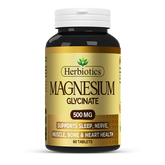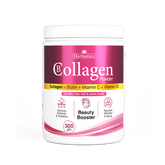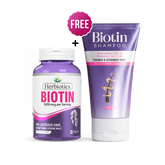Vitamin C vs. Zinc: Which One Boosts Immunity Better?

From dangerous intruders including bacteria, viruses, and poisons. People are eager to strengthen their immune defences as they become more aware of health and wellbeing, especially in the post-pandemic period. Vitamin C and zinc are two of the most popular immune-boosting vitamins. Both are known for their involvement in immune function, but the question remains: which is better for increasing immunity?
If you're seeking for Vitamin C tablets in Pakistan, you may have come across a variety of alternatives, each claiming to provide greater advantages. Similarly, zinc pills are widely accessible and suggested for a variety of health issues, most notably colds and flu. This essay will look at the functions of Vitamin C and Zinc in immune function, evaluate their efficacy, and conclude which is the best immunity booster.
Understanding the Role of Vitamin C in Immunity
Vitamin C, commonly known as ascorbic acid, is a water-soluble vitamin required for a variety of body processes, most notably immune system support. It is not made naturally by the human body, thus it must be obtained from food sources or supplementation.
How Does Vitamin C Boost Immunity?
Vitamin C improves immunological function through a variety of processes:
1. Stimulating White Blood Cells
Vitamin C stimulates the formation and activity of white blood cells such neutrophils, lymphocytes, and phagocytes, which help fight infections.
2. Antioxidant Properties
Vitamin C is a potent antioxidant that helps neutralise free radicals, lowering oxidative stress, which can impair the immune system.
3. Enhancing Skin Barrier Function
The skin serves as the body's first line of defence against infections. Vitamin C increases collagen formation, which improves the skin barrier and reduces the risk of infection.
4. Reducing Inflammation
Chronic inflammation can impair immune function. Vitamin C regulates inflammation by lowering levels of pro-inflammatory cytokines.
5. Increasing Iron Absorption
Iron is necessary for immune cell development. Vitamin C improves non-heme iron absorption, which is important for people who may be iron deficient.
6. Shortening Cold Length
According to research, Vitamin C may not prevent colds, but it can lower their length and intensity.
Sources of Vitamin C
Vitamin C occurs naturally in a variety of fruits and vegetables, including:
- Oranges
- Strawberries
- Kiwis
- Bell peppers
- Spinach
- Broccoli
However, due to dietary restrictions, many individuals in Pakistan choose Vitamin C pills, which give a more convenient and concentrated dosage of this critical mineral.
The Role of Zinc in Immunity
Zinc is an essential trace mineral that helps the immune system operate properly. Unlike Vitamin C, which is water soluble, Zinc is a mineral that must be taken in sufficient quantities to sustain numerous body activities.
How Does Zinc Boost Immunity?
Zinc improves immunological function in numerous ways:
1. Activating T-cells
Zinc is required for the formation and activation of T-cells, which detect and destroy contaminated cells.
2. Supporting Enzyme Function
Zinc functions as a cofactor for approximately 300 enzymes, the majority of which are involved in immunological responses.
3. Reducing Inflammation
Zinc, like Vitamin C, has anti-inflammatory effects that aid in cytokine regulation.
4. Preventing Viral Reproduction
Research suggests that zinc can reduce the reproduction of some viruses, including the common cold virus.
5. Improving Wound Healing
Zinc is required for tissue regeneration and wound healing, which are critical for maintaining an adequate immune defence.
6. Preventing Respiratory Infections
Studies indicate that zinc supplementation can lower the intensity and duration of respiratory tract infections.
Sources of Zinc
Zinc is present in a variety of foods, including:
- Meat (beef, lamb, and fowl)
- Shellfish (oysters and prawns)
- Nuts and seeds (cashews, pumpkin seeds)
- Dairy goods (cheese and yoghurt)
- Legumes (chickpeas and lentils)
Individuals with dietary limitations, on the other hand, may use zinc supplements to achieve their daily requirements.
Vitamin C vs. Zinc: Which One is Better for Immunity?
While both Vitamin C and Zinc are important for immune function, choosing which is preferable relies on a number of criteria, including their distinct functions, efficacy, and adaptability for particular scenarios.
Comparing Their Functions
- Vitamin C works largely as an antioxidant, promoting white blood cell activity and lowering oxidative stress.
- Zinc is a mineral that stimulates immune cells, enhances enzyme performance, and inhibits virus reproduction.
Effectiveness Against Colds and Flu
- According to studies, Vitamin C can lower the length and intensity of colds but does not always prevent them.
- Zinc, especially when taken within 24 hours of symptom start, has been demonstrated to shorten colds by up to 33%.
Suitability for Different Individuals
- Vitamin C is especially beneficial for people who experience regular oxidative stress, such as smokers, athletes, and those who are exposed to pollution.
- Zinc is essential for those at risk of deficiency, such as vegetarians, pregnant women, and the elderly.
Which One Should You Take?
- If you want to improve your general immune health and minimise oxidative stress, Vitamin C may be the best option.
- If you wish to avoid and decrease the duration of colds and viral illnesses, zinc may be a better option.
Combining Vitamin C and Zinc may be the most effective way for boosting immunity. Many immune-boosting pills now offer both minerals for complete protection.
Finding High-Quality Vitamin C Tablets in Pakistan
If you're seeking for a trustworthy Vitamin C supplement in Pakistan, Herbiotics Herbi-C is a great choice. This supplement contains 1000 mg of Vitamin C, which promotes immune support, antioxidant protection, and improved skin health.
Herbi-C is a trusted product, formulated to:
- Support a strong immune system
- Reduce oxidative stress
- Improve skin health
- Enhance iron absorption
Conclusion
When it comes to increasing immunity, Vitamin C and Zinc both play important but separate functions. Vitamin C is a potent antioxidant that promotes white blood cell activity and collagen synthesis, whereas zinc is an important element that stimulates T-cells and inhibits viral reproduction.
Rather than picking one over the other, the ideal approach is to include both nutrients in your diet or supplementing regimen. Zinc may be beneficial if you get colds frequently, while Vitamin C promotes immunological health and decreases oxidative stress.
For individuals wishing to complement their diet, high-quality Vitamin C tablets in Pakistan, such as Herbiotics Herbi-C, can help to boost immunity and preserve overall health.
Do you prefer taking Vitamin C, Zinc, or both? Please share your ideas in the comments below!





